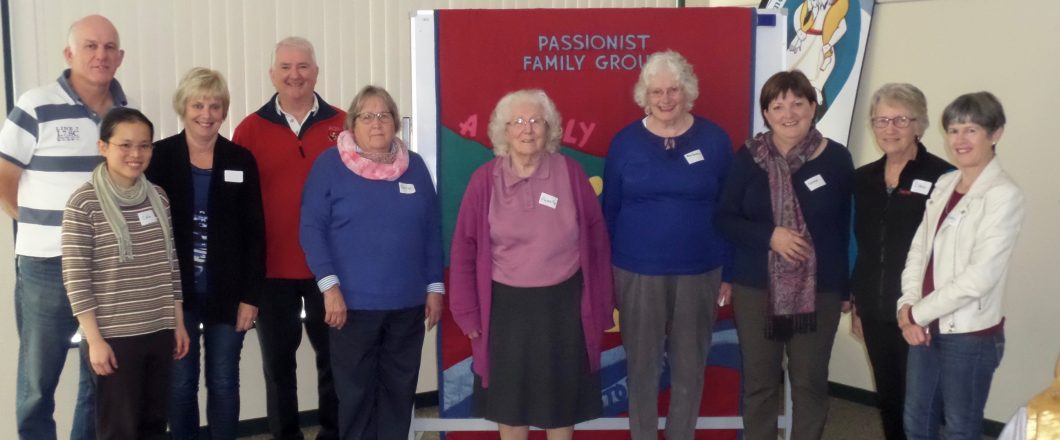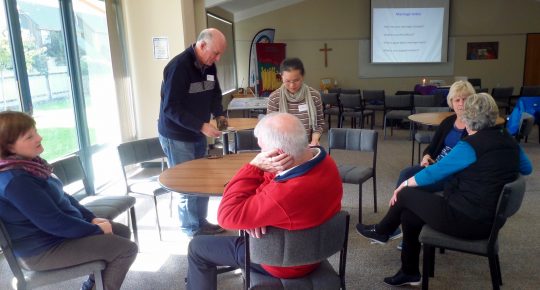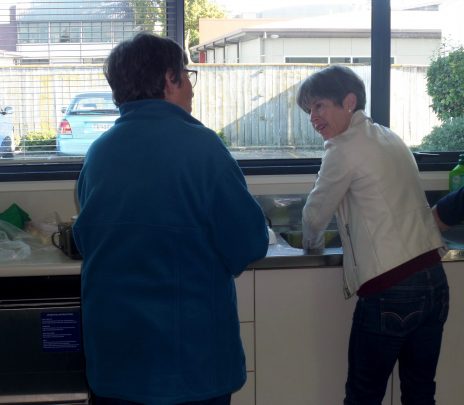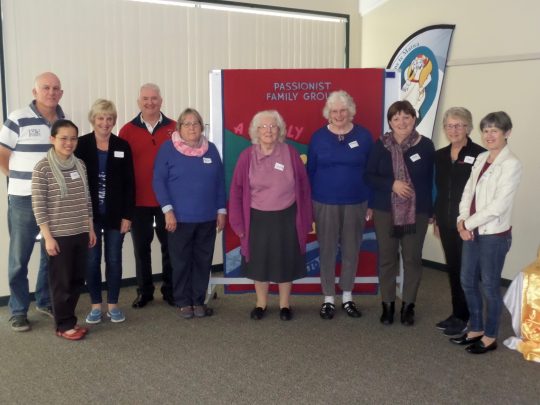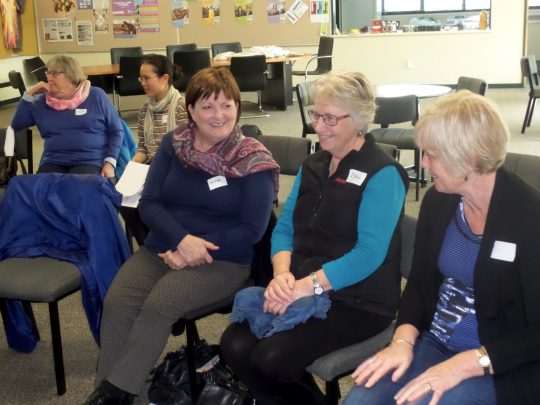Passionist Family members from Palmerston North, Wanganui and Taranaki gathered once again at the Diocesan Centre to hear Fr Brian Traynor present on Ageing, Modern Marriage, Conscience and Decision Making and Pope Francis’ Encyclical Amoris Laetitia, The Joy of Love. The presentations were very informative giving us much to reflect on both from an individual point of view and more importantly to share with our family group members and others in our parishes.
The sessions on Ageing and Marriage gave us a very interesting historical account as well as highlighting the issues of the day e.g. For many people, old age can be a time of increasing social disengagement, turning inward and withdrawing psychologically and socially. This is something that can be imposed by society. In contrast it can also be a time of letting go, forgiving and accepting oneself and of tremendous spiritual growth. As far as marriage is concerned, the traditional notion of marriage as being a partnership between two people of the opposite sex for the purpose of bringing up a family has been challenged. Co habiting couples, same sex marriage and couples living together with no intention of raising a family are seen as part of the norm today. Questions for Family Group members to consider include: What can we learn about ageing and living our lives well? Who is someone in your Passionist Family Group you admire because of how they have aged? What is good about marriage today? What is your biggest concern?
For conscience and decision making we looked at the three steps in the formation of an informed conscience: Learning the mind and heart of Jesus by reading the Gospels, becoming informed by Church teaching, and following my own discerned and informed decision. How does this apply to Pope Francis’ encyclical Amoris Laetitia? The ‘Joy of Love’ makes clear that this is not enough to apply the law, which has been the emphasis in the past. The Church must go beyond the law, into the realm of conscience. Francis has called on pastors to “form” consciences, not “replace” them. Conscience is not a way of evading responsibility, but assuming it. In line with Vatican 2 and Catholic tradition ‘Joy of Love’ portrays conscience as the inner sanctuary and core of a person, where he or she is alone with and responsible to God.
The full notes of Fr Brian’s presentation are available to download from the resources section of the PFG website and are well worth reading and sharing with others. They can become the basis for a good discussion with others. I recommend you take the opportunity to read these.

